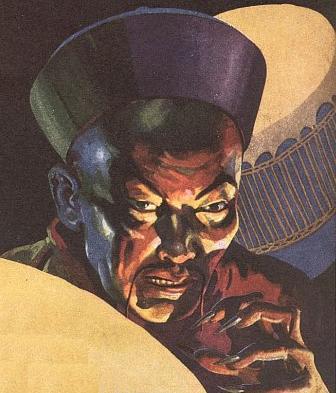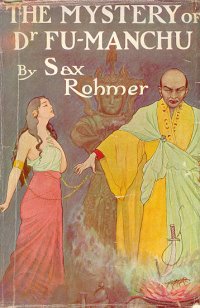Blogging Sax Rohmer’s The Return of Dr. Fu-Manchu, Part Three – “The Avenue Mystery”
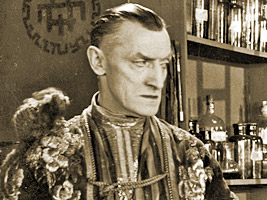 “The Avenue Mystery” was the third installment of Sax Rohmer’s Fu-Manchu and Company. The story was first published in Collier’s on February 6, 1915 and was later expanded to comprise Chapters 7-10 of the second Fu-Manchu novel, The Devil Doctor first published in the UK in 1916 by Cassell and in the US by McBride & Nast under the variant title, The Return of Dr. Fu-Manchu.
“The Avenue Mystery” was the third installment of Sax Rohmer’s Fu-Manchu and Company. The story was first published in Collier’s on February 6, 1915 and was later expanded to comprise Chapters 7-10 of the second Fu-Manchu novel, The Devil Doctor first published in the UK in 1916 by Cassell and in the US by McBride & Nast under the variant title, The Return of Dr. Fu-Manchu.
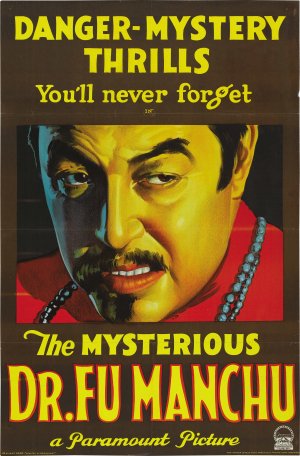 While I hold political correctness in contempt recognizing it to be censorship under a different guise, it is inevitable that in revisiting books or films of the past one encounters racial or sexist stereotypes that are now offensive. I do not support banning a work or editing for content anymore than I support minimalizing the issues raised by their inclusion. A simple disclaimer noting offensive content is contained that reflects acceptable attitudes at the time of the work’s creation should suffice to address the matter.
While I hold political correctness in contempt recognizing it to be censorship under a different guise, it is inevitable that in revisiting books or films of the past one encounters racial or sexist stereotypes that are now offensive. I do not support banning a work or editing for content anymore than I support minimalizing the issues raised by their inclusion. A simple disclaimer noting offensive content is contained that reflects acceptable attitudes at the time of the work’s creation should suffice to address the matter.
Readers of pulp adventure or mystery fiction of the late nineteenth and early twentieth century are accustomed to offensive stereotypes of Asian, African, Italian, Greek, and Jewish characters among others. While Rohmer’s early Fu-Manchu stories contain a good deal less racial stereotyping of Asians than film adaptations or illustrations of the character would suggest; a lamentable streak of anti-Semitism runs through “The Avenue Mystery.” This fact is all the more regrettable because the Jewish character in question, Mr. Abel Slattin ranks among Rohmer’s finest bit players.
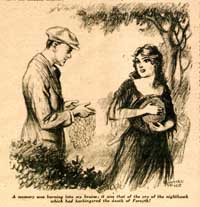
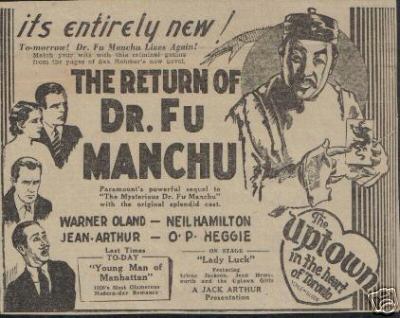
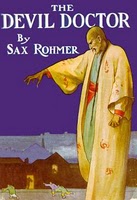
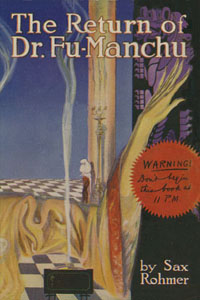
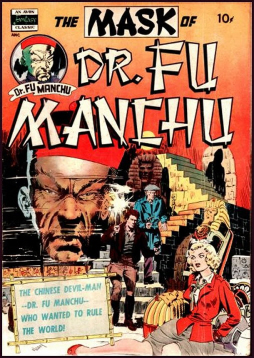 From his first appearance in print in the pages of The Story-Teller in October 1912, Sax Rohmer’s criminal mastermind, Dr. Fu Manchu took the world by storm. While Rohmer would complete three novels featuring the character between 1912 and 1917, the Devil Doctor would extend his domain to include film and comics in the fourteen years before Rohmer bowed to commercial demand and revived the series.
From his first appearance in print in the pages of The Story-Teller in October 1912, Sax Rohmer’s criminal mastermind, Dr. Fu Manchu took the world by storm. While Rohmer would complete three novels featuring the character between 1912 and 1917, the Devil Doctor would extend his domain to include film and comics in the fourteen years before Rohmer bowed to commercial demand and revived the series.